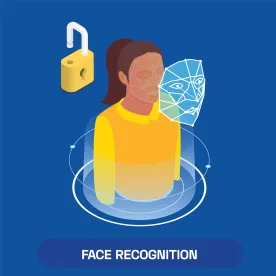It has become commonplace for government agencies and law enforcement, particularly in large metropolitan areas, to use facial recognition software. These entities are a major client base of Clearview AI (“Clearview”), as we disclosed last year here on CPW. These practices, though, have garnered recent public attention and some controversy. In response to concerns raised by media coverage of Clearview’s practices, three cities last year banned their governments from using facial recognition technology, and another banned all corporate uses of facial recognition technology in public spaces. However, for the most part government utilization of facial recognition software has continued unabated.
But using such software is not without risks, as shown by a lawsuit recently filed against law enforcement officers and prosecutors. In Parks v. McCormack, et al., Case No. L-003672-20 (N.J.), the plaintiff alleges he spent ten days wrongfully imprisoned after facial recognition software used by a New Jersey police department mistakenly identified him as a suspect in a criminal investigation. This was allegedly notwithstanding that the plaintiff’s fingerprints and DNA did not match those left at the scene of the crime, and that the plaintiff provided an alibi at the time of his detention. The complaint alleges that the police department involved was relying solely on facial recognition technology in issuing the warrant for the plaintiff’s arrest. Plaintiff filed suit against the police, the prosecutor, and the municipality involved for false arrest, false imprisonment and violation of his civil rights. The lawsuit comes almost one year after New Jersey’s attorney general asked state prosecutors to stop using Clearview AI’s app and announced an ongoing investigation into it and similar facial recognition software.
The plaintiff is the third person reported to have been falsely arrested based on an incorrect facial recognition match. Notably, in all three instances the individuals mistakenly identified by the software were Black men—underscoring racial bias concerns previously raised about the adoption of facial recognition technology by government bodies. The Parks lawsuit names as defendants the officials and government entities involved in the plaintiff’s allegedly wrongful detention and imprisonment. However, due to the doctrine of governmental immunity, which shields the government from liability for the actions of state or federal employees under certain circumstances, future litigations may also seek to bring direct claims against the manufacturers of such software – and Clearview is certainly no stranger to privacy litigation. Stay tuned.





 />i
/>i
